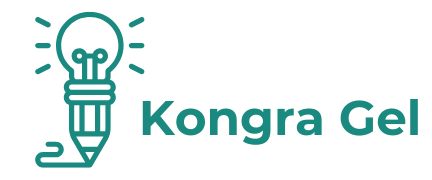Table of Contents
ToggleIn a world buzzing with distractions and endless to-do lists, getting a good night’s sleep often feels like chasing a unicorn. Yet, sleep optimization isn’t just a trendy buzzword—it’s the secret sauce to unlocking peak performance and overall well-being. Imagine waking up refreshed, ready to tackle the day like a superhero in pajamas.
Understanding Sleep Optimization
Sleep optimization focuses on enhancing sleep quality for better daily performance and well-being. Understanding its principles helps individuals harness the full potential of effective sleep practices.
Importance of Sleep
Sleep acts as a cornerstone of health, influencing physical and mental well-being. Maintaining adequate sleep supports cognitive functions such as memory, attention, and decision-making. Chronic sleep deprivation raises risks for serious health issues including heart disease, obesity, and diabetes. Quality sleep promotes emotional stability, contributing to lower stress levels and improved mood. Numerous studies highlight that adults require 7 to 9 hours of sleep per night for optimal functioning. Prioritizing sleep aids maintenance of a balanced lifestyle.
Benefits of Sleep Optimization
Enhanced sleep quality leads to numerous advantages. Improved focus and productivity often result from a well-rested mind. Better sleep fosters creativity and problem-solving skills, facilitating personal and professional growth. Mood regulation also benefits significantly, with fewer irritability episodes among optimized sleepers. Physical performance improves, making exercise routines more effective for those who prioritize sleep quality. Furthermore, effective sleep optimization can boost immune function, helping the body fight off illness. Data indicates that people who optimize their sleep experience overall higher life satisfaction.
Techniques for Sleep Optimization


Optimizing sleep involves incorporating specific techniques to create a restful experience. These techniques focus on the environment and hygiene practices to enhance overall sleep quality.
Sleep Environment
A comfortable sleep environment significantly impacts sleep quality. Darkness is essential, so using blackout curtains can block out unwanted light. It’s beneficial to maintain a cool bedroom temperature, ideally between 60-67°F, as cooler air promotes better rest. Noise reduction matters, too; using earplugs or white noise machines can help drown out disruptions. Keeping the bedroom clean and clutter-free encourages relaxation. Selecting supportive mattresses and pillows also contributes to physical comfort during sleep.
Sleep Hygiene Practices
Practicing good sleep hygiene supports better sleep quality. Establishing a consistent sleep schedule aids in regulating the body’s internal clock, making it easier to fall asleep and wake up. Engaging in relaxing activities before bed, like reading or meditating, prepares the mind for sleep. Limiting screen time from electronic devices at least an hour before bedtime minimizes blue light exposure, which can interfere with melatonin production. Consuming caffeine or heavy meals close to bedtime may also disrupt sleep patterns, so avoiding these enhances the ability to fall asleep quickly.
Sleep Optimization Tools
Utilizing effective tools can significantly enhance sleep quality. Both apps and gadgets play crucial roles in sleep optimization for achieving restful nights.
Apps and Gadgets
Sleep apps provide insights into sleep patterns and help track sleep quality. Popular choices include Sleep Cycle and Calm, which deliver personalized sleep reports and guided relaxation exercises. Wearable gadgets, like Fitbit or Apple Watch, monitor heart rate and activity levels, contributing valuable data for improving sleep. Smart mattresses and adjustable beds also adjust firmness and support, creating ideal sleep conditions. Noise-canceling headphones and white noise machines reduce disturbances, fostering a tranquil environment. By integrating these modern tools, individuals can actively manage their sleep habits.
Supplements and Natural Remedies
Supplements often support enhanced sleep and better relaxation. Melatonin, a well-known supplement, helps regulate circadian rhythms. Magnesium aids muscle relaxation, promoting restful slumber. Herbal remedies like valerian root and chamomile create calming effects, assisting in falling asleep faster. Lavender essential oil, applied via diffusers or pillow sprays, offers soothing scents that encourage relaxation. Incorporating these remedies into routines allows individuals to create personalized approaches to optimize sleep. Prioritizing these options can lead to improved sleep quality and overall well-being.
Common Sleep Disorders
Sleep disorders disrupt the quality of rest and affect overall well-being. Understanding these disorders aids in identifying and addressing sleep challenges.
Insomnia
Insomnia comprises difficulty falling or staying asleep. It can be acute, lasting for days or weeks, or chronic, persisting for months. Factors like stress, anxiety, and depression contribute significantly to insomnia. Behavioral changes can enhance sleep; maintaining a consistent sleep schedule, reducing caffeine intake, and practicing relaxation techniques show effectiveness. Cognitive-behavioral therapy also provides long-lasting solutions for many individuals experiencing insomnia. Approximately 30% of adults report symptoms of insomnia, highlighting its prevalence and impact on daily life.
Sleep Apnea
Sleep apnea involves repeated disruptions in breathing during sleep. Obstructive sleep apnea is the most common type, caused by a blockage of the airway, often due to obesity or anatomical abnormalities. Individuals may experience loud snoring, gasping, or choking sensations during episodes. Diagnosis typically involves overnight sleep studies, which monitor breathing patterns and oxygen levels. Treatments vary based on severity; lifestyle changes like weight loss and the use of CPAP machines offer significant benefits. It’s estimated that sleep apnea affects up to 9% of adults, underlining the importance of early intervention for optimal health outcomes.
Prioritizing sleep optimization is crucial for anyone seeking to enhance their overall well-being and performance. By implementing effective strategies like creating a restful environment and practicing good sleep hygiene, individuals can significantly improve their sleep quality.
Utilizing sleep optimization tools and natural remedies can further personalize their approach, addressing specific needs and challenges. Understanding common sleep disorders and their treatments also plays a vital role in achieving restorative sleep.
With a commitment to better sleep, individuals can wake up rejuvenated and ready to tackle their day with improved focus and emotional stability. Embracing these practices not only leads to better health but also enriches life satisfaction.





